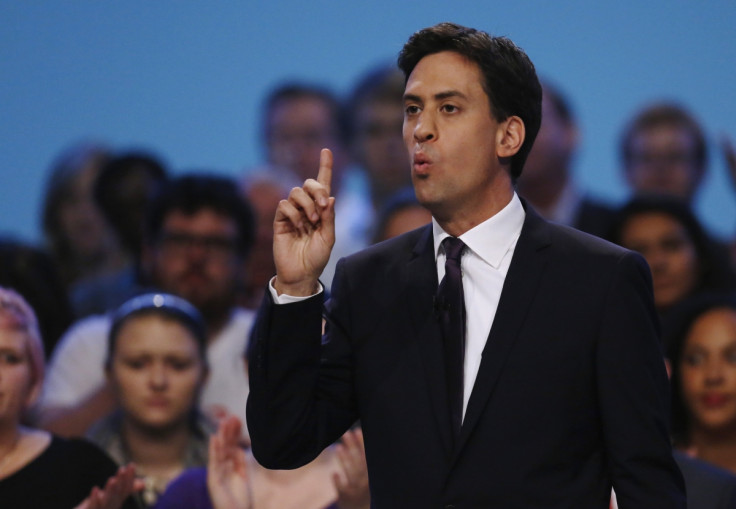Ed Miliband Launches Labour's Economy Offensive with Middle Class Rallying Call

Labour leader Ed Miliband is moving on from his 'cost of living crisis' agenda by unveiling key economic policies to help the struggling middle classes which would form the heart of the party's 2015 election manifesto.
On the day the coalition won a further boost, with inflation falling to its target 2% in December and a new ICM/Guardian poll showing Labour's lead down to just 3%, Miliband identified the "crisis of confidence for middle class families" as a major issue and, crucially, admitted it started before the last election.
He will flesh out his plans to tackle the crisis in a keynote speech later this week. Shadow ministers are also expected to start delivering concrete manifesto commitments over coming weeks.
Miliband's move has come after a relatively quiet start to the new year during which David Cameron started to re-focus attention onto the recovery and his "long term plan for the economy".
After Miliband's agenda-setting energy freeze policy of last year, followed by his targeting of living standards, the coalition was desperate to get back on the front foot.
The greatest challenge for our generation is how to tackle a crisis in living standards that has now become a crisis of confidence for middle-class families.
The gradual economic recovery has started to corrode Labour's poll lead and there is a recognition in party ranks that the "cost of living crisis" slogan is starting to lose its power as Miliband momentum slows.
One on-going problem has been the large black hole at the centre of Labour's economic strategy and the apparent reluctance to admit to previous mistakes.
Now, with a concerted new year assault, the Labour leader is moving onto new territory. His admission that the middle classes had been ignored under the previous government will go some way towards answering critics, but more importantly, he will start filling in some detail of exactly what a Labour government would do.
He mapped out the territory in an article in the Daily Telegraph in which he stated: "The current cost-of-living crisis is not just about people on tax credits, zero-hours contracts and the minimum wage. It is about millions of middle-class families who never dreamt that life would be such a struggle.
"Access to further education and training, good quality jobs with reliable incomes, affordable housing, stable savings, secure pensions: they have all been undermined.
"No one saw this protracted squeeze on the middle coming. My own party's politics changed in the Nineties to surf a wave of aspirational self-confidence. But the task facing the next Labour government will be far different from the one we faced in 1997. Indeed, the greatest challenge for our generation is how to tackle a crisis in living standards that has now become a crisis of confidence for middle-class families."
He promised he would start "setting out the next steps of our plan to build a One Nation economy by reforming finance, skills and wages while paying down the deficit".
By focusing on the middle classes, Miliband is re-heating the "squeezed middle" slogan. And it is a section of society that regularly claims to be ignored as the political parties focus on the less well off.
More and more middle-income earners have been drawn into higher tax bands, for example, although it would be a risky and costly pledge to suggest raising the threshold.
Similarly, by highlighting pensions, Miliband is hinting at reforms in a hugely difficult and controversial area. At the moment much of the political argument is over whether wealthier pensioners should continue to receive benefits such as the winter fuel payment.
What the Labour leader has succeeded in doing with his Telegraph piece is focusing attention onto his big speech later this week. He will now need to deliver.
© Copyright IBTimes 2025. All rights reserved.






















